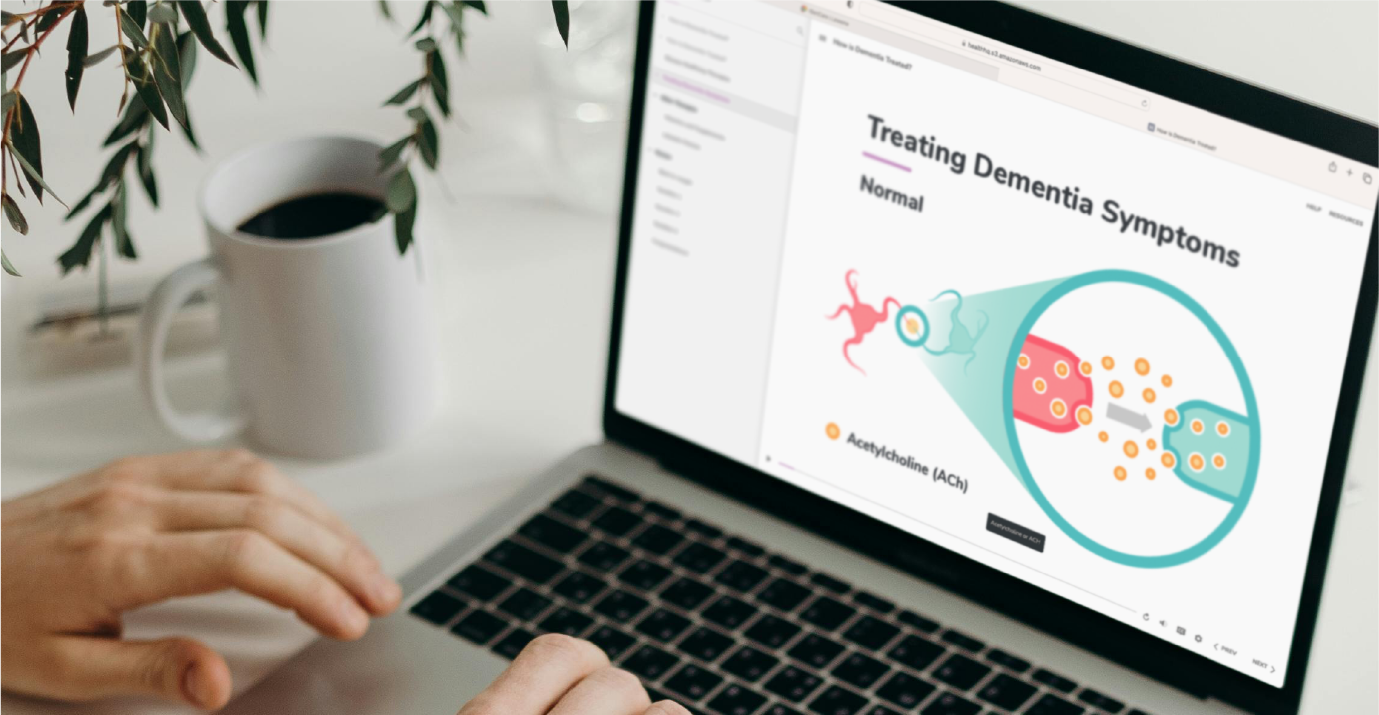We hear from Dr Anthony J. Levinson, who is part of an academic group developing evidence-based online resources to complement dementia prevention strategies and support care partners
The prevalence of dementia is increasing as our population ages. From a public health standpoint, we need to continue to try to prevent or delay conditions that lead to dementia while also striving to better support people living with dementia and their family/friend care partners.
While age and other factors like genetics are important non-modifiable risk factors, there is increasing evidence that several modifiable risk factors account for up to 40% of dementias. While some factors – such as physical activity – may be familiar to some, other factors, such as hearing loss, blood pressure, or social activity, may be much less well-known to the public as risk factors for dementia. For individuals newly diagnosed with dementia or family/friends trying to support and care for their loved ones, they may have very little knowledge about the condition and what to expect. This is where access to easy-to-understand educational content about dementia can be beneficial.
Well-designed e-learning is a potentially effective way to raise awareness about dementia risk reduction and educate family and friend care partners and healthcare providers about the disease. Our academic group works to design, build, disseminate, and research evidence-based online resources to complement dementia prevention strategies and help care partners affected by the condition.

DementiaRisk.ca
To help raise awareness about dementia prevention, McMaster University, with support from the Public Health Agency of Canada, has developed dementiarisk.ca, a free web-based resource available on the McMaster Optimal Aging Portal. The resource features:
- A 35-minute multimedia e-learning lesson about how to promote brain health;
- Articles about each of the modifiable dementia risk factors;
- An interactive quiz; and
- An email-based ‘micro-learning’ campaign.
The lesson incorporates evidence-based content about dementia risk factors while using best practices in instructional design for e-learning, incorporating principles such as multimedia, audio narration, a virtual coach for personalization, and other features. The email series is designed to reinforce learning through the deliberate spaced repetition of key content. There is also a summary handout with key actionable messages, particularly suitable for sharing with those who may not have internet or computer access.
A randomized controlled trial conducted earlier in 2023 showed that the online intervention significantly improved knowledge, the intention to engage in healthy lifestyle behaviors and self-reported leisure time exercise. These benefits were seen after the end of the four-week study but also persisted for two months after the end of the study.
Since the resource was made available on the McMaster Optimal Aging Portal in August of 2023, over ninety thousand people have visited the site, and over eight thousand have subscribed to the email-based micro-learning. The e-learning lesson is rated as ‘excellent’ based on the Net Promoter Score (NPS) – a common tool that asks visitors how likely they are to recommend the resource. Survey data from those who accessed the resource using a validated consumer health information questionnaire indicated that over 98% find the content relevant, understandable, and valuable and expect at least one benefit. Above half said it taught them something new, and over 90% of respondents said they plan to do something to reduce their risk of dementia within the next three to six months.
An academic manuscript based on the data from both the randomized controlled trial and the dissemination on the portal is currently being produced, with expected publication in 2024.
Educating care partners and healthcare providers
For family and friend care partners of people living with dementia, our award- winning iGeriCare.ca website provides free e-learning about various aspects of the condition, including the different types of dementia, stages of the disorder, and behavioral symptoms. Survey data from over eight hundred respondents have identified the resources as relevant and beneficial, and people plan to use the information in helping to care for their loved one. The internet-based program is used in clinical settings and by advocacy organizations to complement other patient and family education strategies.
We also adapted our dementia education into the Dementia Foundations Program, an entirely asynchronous, self-paced certificate training program for unregulated healthcare workers (such as personal support workers, home care aides, and paid care companions). In an initial pilot validation study, fifty personal support workers (PSWs), PSW trainees, and other paid care companions showed significant improvements in dementia knowledge and attitudes using validated measures.
This program is now available for institutional and organizational training or through individual self-enrolment, with over three hundred people having completed the program to date, showing excellent course evaluations in line with our other dementia education programs.
Summary
Evidence-based e-learning offers an effective, cost-efficient, and scalable approach to inform the public about dementia risk reduction strategies and educate care partners and healthcare workers about dementia to complement quality clinical care.
It’s never too early or too late to reduce your risk of dementia.

This work is licensed under Creative Commons Attribution-NonCommercial-NoDerivatives 4.0 International.


